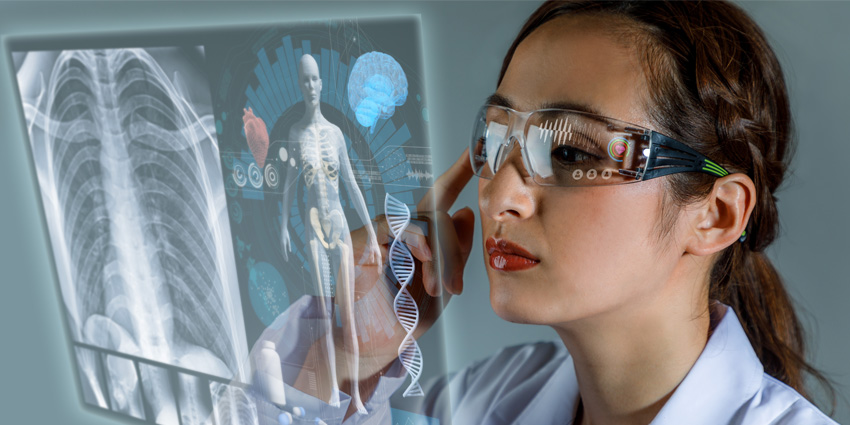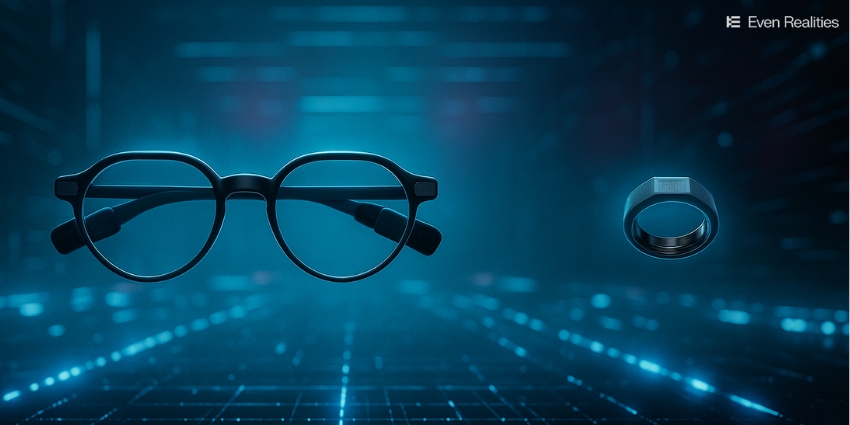The augmented reality (AR) sector is one of the fastest-growing segments in the immersive technologies market.
One of the top industries fuelling the rise of AR is healthcare, which could transform training and therapeutic processes by providing physicians, nurses, and other healthcare professionals with timely assistance.
According to a report from Grandview Research, AR has reached a crucial point in its growth due to the demand for remote collaboration and the need to support a distributed workforce.
A 2020 analysis from ResearchAndMarkets also found that the healthcare AR market will reach $4 billion by 2025.
Understanding the Role of Augmented Reality in Healthcare
Augmented reality (AR) refers to an interactive digital experience where 3D depictions of virtual objects are superimposed onto real-world surroundings to provide a mixed-media experience to the user.
A good example of AR technology is Snapchat filters, where different graphical elements are placed and anchored to a person’s real facial features on the mobile screen.
AR healthcare applications use similar principles to combine digital content like diagrams, instructions, arrows, text, and others using real-world images and photographs.
There are three primary use cases for AR in healthcare:
- Training and collaboration – AR makes learning and information sharing more interactive by increasing knowledge retention and learner engagement.
- Guided therapy – AR allows physicians and nurses to receive real-time guidance on therapeutic practices, even when the person providing the advice sits in a different location.
- Patient empowerment – AR makes it easier for patients to convey information about their healthcare issues and symptoms, and helps prevent illnesses by educating users on how to adopt a healthier lifestyle.
Examples of How AR Can Transform Healthcare
Here are eight examples of how AR can impact healthcare:
1. AR maps for emergency healthcare
AR can help quickly locate emergency healthcare options in an urgent situation.
Mobile apps can highlight the location of a nearby doctor, clinic, or medical equipment center when the user holds a smartphone in front of a street, similar to the AR game Pokemon Go.
The AR healthcare app would clearly indicate the facilities available at a location, without having to enter the premises.
2. Support during childcare
Taking care of very young children can prove challenging for newly appointed nurses and new mothers, particularly when they are unable to bring a child to the clinic.
A remote healthcare expert can guide new parents through child care practices by superimposing instructions, insights, and advice directly on top of a video feed of the child.
For example, the Australian Breastfeeding Association is currently testing Google Glass AR to instruct mothers on child care and breastfeeding procedures.
3. AR for doctor-patient communication
It can be difficult for doctors to clearly communicate the details of healthcare issues and solutions to its patients. Given that healthcare is a complex topic, there is a possibility that some advice will be lost in translation.
AR healthcare solutions allow doctors to take patients through a hands-on explanation of a symptom and how to resolve it.
In ophthalmology, for instance, doctors could explain problems more clearly by working with an AR model of the human eye.
4. AR for intravenous injections
This is among the simplest applications of AR healthcare that can be widely implemented and would prove extremely beneficial for nurses.
Some nurses may have difficulty finding the right vein before giving an intravenous injection, which negatively influences patient experiences and causes delays in the caregiving process.
An AR app would project visuals of the human anatomy and nervous system directly onto a person’s skin and point out the precise locations of veins.
5. Pharmaceutical collaboration
Augmented reality can speed up drug discovery by making it easier to visualize molecular structures.
It also allows multiple stakeholders to share the information by superimposing text and other content onto the AR display. Better pharmaceutical collaboration can shorten the lead time for drug discovery, design, trial, and approval.
6. AR guidance during surgery
AR healthcare apps can provide surgeons with “X-ray vision” when performing surgeries. They can put on a pair of AR glasses that superimpose anatomical models onto the patient’s physical body.
One such solution is HoloAnatomy, which is currently being used for training purposes. Surgeons can also receive real-time guidance via AR glasses.
7. AR for healthier lifestyles
There are a number of ways augmented reality can encourage people to pursue healthier lifestyle habits. It could make it easier to assemble and use fitness equipment at home.
An AR healthy eating app could scan and display nutritional information using AR-capable smartphones, or update users about their progress when exercising, such as showing the number of steps, pace, and heart rate when out for a walk.
8. Interactive healthcare training
AR can help learners at all grade levels and train healthcare professionals on highly complex procedures. Image reconstruction technology can help visualize complex issues like tumors in detail before the surgery takes place.
Students can use AR apps on their smartphones to learn more about the human body by scanning anatomical models with their smartphones or devices.
Benefits of AR in Healthcare
The biggest benefit of using AR in healthcare is that it allows people to visualize highly-complex information in a comprehensible manner.
AR apps make visualising complex human structures possible through the convenience of a smartphone or lightweight AR glasses.
Information shared via AR is also easier to understand than traditional communication methods and supports interactive walkthroughs.
AR also enables training and brainstorming in a safe environment without requiring trials with real patients.
Before a drug enters real-world trials, pharmaceutical stakeholders can explore various molecular combinations without any risk. Some companies specializing in AR healthcare applications include 8chili, Zoho Lens, and EchoPixel, among others.







